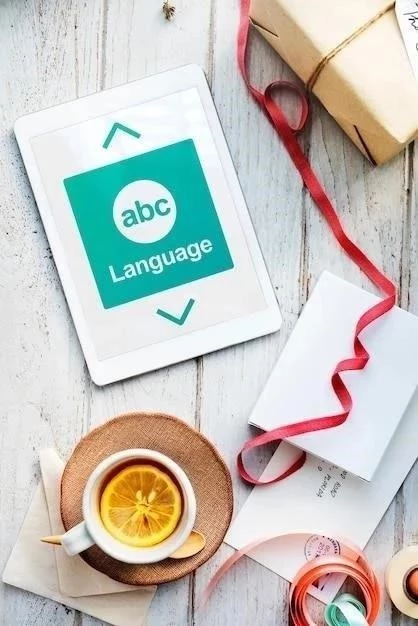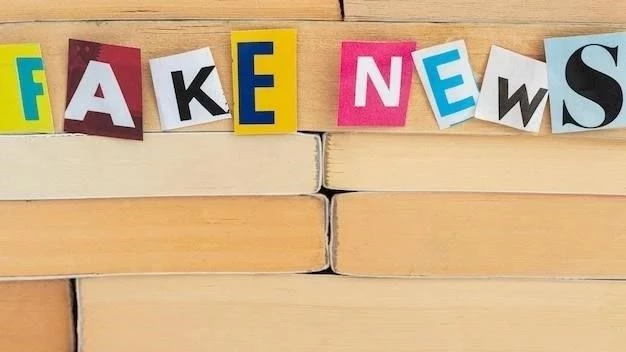
Mastering the English language is a journey that often involves more than just memorizing vocabulary and grammar rules․ While these elements are crucial, it’s the ability to use common phrases and expressions that truly elevates your fluency and communication skills․ These phrases, often referred to as “idioms” or “colloquialisms,” are integral to everyday English conversation, adding color, nuance, and a natural flow to your speech․
This comprehensive guide will equip you with 100 essential English phrases, providing explanations, examples, and tips for incorporating them into your vocabulary․ Whether you’re a beginner, intermediate, or advanced learner, these phrases will enhance your linguistic skills and empower you to communicate more effectively in various settings․
1․ Greetings and Farewells
- Good morning/afternoon/evening: These are the standard greetings for different times of the day․
- Example⁚ “Good morning, how are you today?”
- Hello/Hi: Casual greetings suitable for both formal and informal settings․
- Example⁚ “Hello, it’s nice to meet you․”
- How are you?⁚ A common way to inquire about someone’s well-being․
- Example⁚ “How are you doing today?”
- I’m fine, thanks⁚ A polite response to “How are you?”․
- Example⁚ “I’m fine, thanks․ How are you?”
- Goodbye/See you later⁚ Common ways to say farewell․
- Example⁚ “Goodbye, have a nice day!”
- Take care⁚ A friendly way to say goodbye, expressing concern for the other person’s well-being․
- Example⁚ “Take care, and let me know how things go․”
- Have a good day/night: A polite wish for a pleasant experience․
- Example⁚ “Have a good day at work․”
- Nice to meet you⁚ Used when meeting someone for the first time․
- Example⁚ “Nice to meet you, John․ I’m Sarah․”
- It’s a pleasure to meet you⁚ A more formal way to express pleasure at meeting someone․
- Example⁚ “It’s a pleasure to meet you, Ms․ Smith․”
2․ Expressing Agreement and Disagreement
- I agree/I disagree⁚ Direct ways to express agreement or disagreement․
- Example⁚ “I agree with you․ That’s a great idea․”
- Example⁚ “I disagree․ I think there’s a better solution․”
- That’s right/That’s true⁚ Used to confirm or acknowledge agreement․
- Example⁚ “That’s right, the meeting is at 10 am․”
- I understand/I see your point⁚ Shows that you comprehend the other person’s perspective․
- Example⁚ “I understand your concerns, but I still think it’s the best option․”
- I’m not sure/I don’t know⁚ Honest responses when you are uncertain․
- Example⁚ “I’m not sure about that․ Let me check with my manager․”
- I think so/I don’t think so⁚ Expressing an opinion with a degree of certainty․
- Example⁚ “I think so, but I’m not completely sure․”
- You’re right/You’re wrong⁚ Direct statements indicating agreement or disagreement․
- Example⁚ “You’re right, I should have been more careful․”
- I’m with you on that⁚ Expressing agreement with someone’s opinion․
- Example⁚ “I’m with you on that․ The new policy is unfair․”
- I beg to differ⁚ A more formal way to express disagreement․
- Example⁚ “I beg to differ․ I believe the evidence points to a different conclusion․”
- I’m not convinced⁚ Expressing skepticism or a lack of belief in something․
- Example⁚ “I’m not convinced that this plan will work․”
3․ Expressing Gratitude and Apology
- Thank you/Thanks: Expressions of gratitude․
- Example⁚ “Thank you for your help․”
- You’re welcome⁚ A polite response to “Thank you․”
- Example⁚ “You’re welcome․ I was happy to help․”
- I appreciate it⁚ A more formal way to express gratitude․
- Example⁚ “I appreciate your time and effort;”
- I’m sorry⁚ Used to express regret or apology․
- Example⁚ “I’m sorry, I didn’t mean to interrupt you․”
- Excuse me⁚ Used to politely interrupt someone or to get someone’s attention․
- Example⁚ “Excuse me, could you please pass the salt?”
- My apologies⁚ A more formal way to express apology․
- Example⁚ “My apologies for being late․”
- I’m so sorry⁚ Used to express deep regret or apology․
- Example⁚ “I’m so sorry for your loss․”
- Please forgive me⁚ A more formal way to ask for forgiveness․
- Example⁚ “Please forgive me for my mistake․”
- No problem⁚ A casual way to respond to an apology․
- Example⁚ “No problem, it happens to the best of us․”
4․ Asking for Clarification and Providing Information
- What do you mean?⁚ Used to ask for clarification about something that is unclear․
- Example⁚ “What do you mean by ‘urgent’?”
- Could you explain that again?⁚ A polite way to ask for something to be explained again․
- Example⁚ “Could you explain that again? I didn’t quite understand․”
- I’m not sure I understand⁚ Expressing confusion or difficulty understanding something․
- Example⁚ “I’m not sure I understand․ Can you give me an example?”
- Can you tell me more about that?⁚ Used to request additional information․
- Example⁚ “Can you tell me more about that project?”
- Let me know⁚ Used to request someone to inform you of something․
- Example⁚ “Let me know when you’re ready to start․”
- I’ll let you know⁚ Used to inform someone that you will provide information later․
- Example⁚ “I’ll let you know as soon as I have an update․”
- That’s right/That’s correct⁚ Used to confirm that information is accurate․
- Example⁚ “That’s right, the deadline is next Friday․”
- I see⁚ Used to acknowledge that you have understood something․
- Example⁚ “I see․ So you’re saying that we need to revise the plan․”
- I’m not sure⁚ Used to express uncertainty or lack of knowledge․
- Example⁚ “I’m not sure, but I can check and get back to you․”
5․ Expressing Opinions and Feelings
- I think/I believe⁚ Used to express an opinion or belief․
- Example⁚ “I think we should go to the beach this weekend․”
- In my opinion⁚ A more formal way to introduce an opinion․
- Example⁚ “In my opinion, the new policy is a mistake․”
- I feel/I’m feeling⁚ Used to express emotions or feelings․
- Example⁚ “I feel happy today․”
- I’m excited/I’m nervous⁚ Expressing specific emotions․
- Example⁚ “I’m excited about the new job opportunity․”
- I’m happy/I’m sad⁚ Expressing basic emotions․
- Example⁚ “I’m happy to see you․”
- I’m surprised/I’m disappointed⁚ Expressing unexpected emotions․
- Example⁚ “I’m surprised to hear that news․”
- I’m worried/I’m concerned⁚ Expressing anxiety or concern․
- Example⁚ “I’m worried about the upcoming exam․”
- I’m angry/I’m frustrated⁚ Expressing negative emotions․
- Example⁚ “I’m angry about the injustice․”
- I’m bored/I’m tired⁚ Expressing feelings of boredom or fatigue․
- Example⁚ “I’m bored with this movie․”
6․ Making Requests and Giving Instructions
- Could you please․․․⁚ A polite way to make a request․
- Example⁚ “Could you please pass the salt?”
- Would you mind․․․⁚ Another polite way to make a request․
- Example⁚ “Would you mind closing the window?”
- Can you․․․⁚ A more direct way to make a request․
- Example⁚ “Can you help me with this?”
- Please․․․⁚ A simple way to add politeness to a request․
- Example⁚ “Please wait here․”
- Do you mind if I․․․⁚ Used to ask permission․
- Example⁚ “Do you mind if I borrow your pen?”
- I need you to․․․⁚ Used to give a direct instruction;
- Example⁚ “I need you to finish this report by tomorrow․”
- Make sure you․․․⁚ Emphasizing the importance of following an instruction․
- Example⁚ “Make sure you lock the door when you leave․”
- Don’t forget to․․․⁚ Reminding someone to do something․
- Example⁚ “Don’t forget to bring your umbrella․”
- You should․․․⁚ Giving advice or a suggestion․
- Example⁚ “You should take a break and relax․”
7․ Expressing Time and Frequency
- Later/Soon: General terms for an unspecified time in the future․
- Example⁚ “I’ll call you later․”
- Right now/Immediately: Indicating an immediate action․
- Example⁚ “I need to leave right now․”
- Yesterday/Tomorrow: Referring to the previous or following day․
- Example⁚ “I went to the store yesterday․”
- This morning/afternoon/evening: Specifying a part of the day․
- Example⁚ “I had breakfast this morning․”
- Once/Twice/Three times⁚ Indicating frequency․
- Example⁚ “I’ve been to Paris twice․”
- Always/Never: Expressing absolute frequency․
- Example⁚ “I always brush my teeth before bed․”
- Usually/Sometimes/Often: Expressing varying degrees of frequency․
- Example⁚ “I usually go to the gym on Tuesdays․”
- Every day/week/month/year: Specifying a recurring time interval․
- Example⁚ “I go to work every day․”
- For a while/For a long time⁚ Indicating duration․
- Example⁚ “I’ve been working on this project for a while․”
8․ Expressing Location and Direction
- Here/There: Indicating proximity or distance․
- Example⁚ “The book is here on the table․”
- Over there/Right there⁚ More specific ways to indicate location․
- Example⁚ “The coffee shop is over there on the corner․”
- Inside/Outside: Indicating location relative to a space․
- Example⁚ “The dog is outside in the yard․”
- Up/Down: Indicating vertical direction․
- Example⁚ “Go up the stairs to the second floor․”
- Left/Right: Indicating horizontal direction․
- Example⁚ “Turn left at the next intersection․”
- Straight ahead/Turn around⁚ Providing directions․
- Example⁚ “Go straight ahead for two blocks․”
- Near/Far: Indicating distance․
- Example⁚ “The library is near the park․”
- Across from/Next to⁚ Indicating relative location․
- Example⁚ “The bank is across from the post office․”
- In front of/Behind: Indicating position relative to an object․
- Example⁚ “The car is in front of the house․”
9․ Expressing Quantity and Size
- A lot/Many/Much: Indicating a large quantity․
- Example⁚ “I have a lot of work to do today․”
- A few/A little⁚ Indicating a small quantity․
- Example⁚ “I have a few questions․”
- Some/Any: Expressing an unspecified quantity․
- Example⁚ “Do you have any milk?”
- All/None: Expressing totality or absence․
- Example⁚ “I ate all the cookies․”
- Big/Small: Indicating size․
- Example⁚ “The house is big․”
- Large/Tiny: More specific terms for size․
- Example⁚ “The dog is large․”
- Long/Short: Indicating length․
- Example⁚ “The road is long․”
- Wide/Narrow: Indicating width․
- Example⁚ “The river is wide․”
- Heavy/Light: Indicating weight․
- Example⁚ “The box is heavy․”
10․ Expressing Possession and Ownership
- I have/I don’t have⁚ Indicating possession․
- Example⁚ “I have a car․”
- It’s mine/It’s yours⁚ Indicating ownership․
- Example⁚ “This book is mine․”
- My/Your/His/Her/Its: Possessive adjectives․
- Example⁚ “This is my house․”
- Mine/Yours/His/Hers/Its: Possessive pronouns․
- Example⁚ “The blue car is hers․”
- Belong to⁚ Indicating ownership․
- Example⁚ “This phone belongs to me․”
- Own⁚ A more formal way to indicate ownership․
- Example⁚ “I own a small business․”
- Give/Get: Indicating transfer of possession․
- Example⁚ “Can you give me the book?”
- Take/Borrow: Indicating temporary possession․
- Example⁚ “Can I borrow your phone?”
- Keep/Lose: Indicating maintaining or losing possession․
- Example⁚ “I’m going to keep this souvenir․”
11․ Expressing Ability and Inability
- I can/I can’t⁚ Indicating ability or inability․
- Example⁚ “I can speak French․”
- I’m able to/I’m unable to⁚ More formal ways to express ability or inability․
- Example⁚ “I’m able to complete the task on time․”
- I know how to/I don’t know how to⁚ Expressing knowledge or lack of knowledge about how to do something․
- Example⁚ “I know how to swim․”
- I’m good at/I’m bad at⁚ Expressing proficiency or lack of proficiency in a skill․
- Example⁚ “I’m good at playing the guitar․”
- I’m capable of/I’m incapable of⁚ Expressing potential or lack of potential․
- Example⁚ “I’m capable of handling this responsibility․”
- I’m allowed to/I’m not allowed to⁚ Indicating permission or lack of permission․
- Example⁚ “I’m allowed to use the company car for business purposes․”
- I’m permitted to/I’m not permitted to⁚ More formal ways to express permission or lack of permission․
- Example⁚ “I’m not permitted to disclose confidential information․”
- I’m supposed to/I’m not supposed to⁚ Indicating an expectation or rule․
- Example⁚ “I’m supposed to be at work by 9 am․”
- I’m required to/I’m not required to⁚ Indicating a requirement or lack of requirement․
- Example⁚ “I’m required to wear a uniform․”
12․ Expressing Preferences and Choices
- I prefer/I don’t prefer⁚ Expressing a preference․
- Example⁚ “I prefer tea over coffee․”
- I’d rather/I’d rather not⁚ Expressing a stronger preference․
- Example⁚ “I’d rather stay home tonight․”
- I like/I don’t like⁚ Expressing a general liking or disliking․
- Example⁚ “I like to read books․”
- I love/I hate⁚ Expressing strong feelings of liking or disliking․
- Example⁚ “I love to travel․”
- I want/I don’t want⁚ Expressing a desire or lack of desire․
- Example⁚ “I want to go to the party․”
- I choose/I choose not to⁚ Making a deliberate decision․
- Example⁚ “I choose to stay optimistic․”
- My choice/Your choice⁚ Indicating who has the decision-making power․
- Example⁚ “It’s your choice whether to go or not․”
- I’m happy with/I’m not happy with⁚ Expressing satisfaction or dissatisfaction with a choice․
- Example⁚ “I’m happy with my decision․”
- I’m okay with/I’m not okay with⁚ Expressing acceptance or rejection of a choice․
- Example⁚ “I’m okay with staying late tonight․”
13․ Expressing Purpose and Reason
- To/In order to⁚ Indicating purpose․
- Example⁚ “I went to the store to buy milk․”
- Because/Since/As: Indicating reason․
- Example⁚ “I’m late because I missed the bus․”
- For this reason/Therefore: Indicating a consequence․
- Example⁚ “For this reason, I’m going to take a different route․”
- So/That’s why⁚ Used to explain a situation or outcome․
- Example⁚ “So I decided to call a taxi․”
- The reason is/The purpose is⁚ Providing a direct explanation for a reason or purpose․
- Example⁚ “The reason I’m here is to discuss the project․”
- Due to/Because of⁚ Attributing an event or situation to a cause․
- Example⁚ “Due to the bad weather, the flight was delayed․”
- As a result/Consequently: Indicating a consequence or outcome․
- Example⁚ “As a result of the accident, the road was closed․”
- In conclusion/Therefore: Summarizing a point or drawing a conclusion․
- Example⁚ “In conclusion, we need to take action to address this problem․”
- For instance/For example⁚ Providing an illustration or example․
- Example⁚ “For instance, we could offer a discount to attract new customers․”
14․ Expressing Uncertainty and Doubt
- Maybe/Perhaps: Expressing possibility or uncertainty․
- Example⁚ “Maybe we should go to the movies tonight․”
- I’m not sure/I don’t know⁚ Expressing lack of knowledge or certainty․
- Example⁚ “I’m not sure if I can make it․”
- I doubt it/I’m doubtful⁚ Expressing skepticism or doubt․
- Example⁚ “I doubt it will rain today․”
- I’m not convinced⁚ Expressing a lack of belief or understanding․
- Example⁚ “I’m not convinced that this plan will work․”
- It’s possible/It’s unlikely⁚ Assessing the likelihood of something․
- Example⁚ “It’s possible that we’ll get a raise this year․”
- I wonder/I’m curious⁚ Expressing curiosity or a desire to know more․
- Example⁚ “I wonder what’s happening over there․”
- I’m not certain/I’m not confident⁚ Expressing a lack of confidence or certainty․
- Example⁚ “I’m not certain about the details․”
- I’m not sure if/I’m not sure whether⁚ Expressing hesitation or indecision․
- Example⁚ “I’m not sure if I should go․”
- It’s unclear/It’s ambiguous⁚ Describing a situation that is not clear or definite․
- Example⁚ “It’s unclear what the future holds․”
15․ Expressing Surprise and Excitement
- Wow!/Amazing!: Expressing surprise or admiration․
- Example⁚ “Wow, that’s a beautiful view!”
- Really?/Seriously?: Expressing disbelief or surprise․
- Example⁚ “Really? You’re going to quit your job?”
- That’s great!/That’s awesome!⁚ Expressing enthusiasm or excitement․
- Example⁚ “That’s great! Congratulations on your promotion․”
- I can’t believe it!/I’m so excited!⁚ Expressing strong surprise or excitement․
- Example⁚ “I can’t believe it! I won the lottery!”
- That’s incredible!/That’s unbelievable!⁚ Expressing astonishment or disbelief․
- Example⁚ “That’s incredible! You climbed Mount Everest?”
- I’m shocked!/I’m stunned!⁚ Expressing strong surprise or shock․
- Example⁚ “I’m shocked to hear that news․”
- I’m thrilled!/I’m delighted!⁚ Expressing great joy or happiness․
- Example⁚ “I’m thrilled to be here today․”
- I’m so happy for you!/I’m so proud of you!⁚ Expressing joy or pride for someone else․
- Example⁚ “I’m so happy for you! You deserve all the success․”
- What a surprise!/What a coincidence!⁚ Expressing surprise at an unexpected event or coincidence․
- Example⁚ “What a surprise! I didn’t know you were coming․”
16․ Expressing Agreement and Understanding
- I see/I understand⁚ Acknowledging that you comprehend something․
- Example⁚ “I see․ So you’re saying we need to reschedule the meeting․”
- You’re right/That’s true⁚ Confirming agreement with someone’s statement․
- Example⁚ “You’re right, I should have been more careful․”
- Exactly/Precisely: Emphasizing agreement with someone’s statement․
- Example⁚ “Exactly! That’s what I was thinking․”
- I agree with you/I’m with you on that⁚ Expressing agreement with someone’s opinion․
- Example⁚ “I agree with you․ The new policy is unfair․”
- I get it/I know what you mean⁚ Showing that you understand someone’s point․
- Example⁚ “I get it․ You’re frustrated with the delays․”
- I’m on the same page/We’re on the same wavelength⁚ Indicating shared understanding or agreement․
- Example⁚ “I think we’re on the same page about this project․”
- I hear you/I’m listening⁚ Acknowledging that you are paying attention to someone․
- Example⁚ “I hear you․ Your concerns are valid․”
Catégorie: La Philosophie



